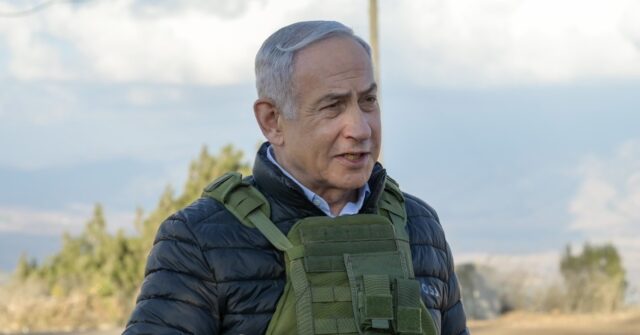In a recent press conference, Israeli Prime Minister Benjamin Netanyahu claimed that Israel has successfully dismantled a network of terrorist organizations along its borders that Iran had been cultivated over 45 years—achieving this in just 14 months. Netanyahu’s statements came on the heels of significant developments in the region, notably the rapid shift of power in Syria as rebel forces gained ground against the Assad regime. This instability followed Israel’s own military achievements against Hezbollah in Lebanon, a group heavily backed by Iran, which has historically served as a conduit for Tehran’s military initiatives against Israel.
Hezbollah, armed and funded by Iran, has not only been a direct military threat to Israel but also played a crucial role in the political landscape of Lebanon, alongside supporting the Assad regime in combating Sunni militias. Over the years, Iran has likewise influenced Hamas, a Sunni organization that increasingly relies on Shiite Iran for military resources, training, and logistical support. Netanyahu highlighted Israel’s military actions that virtually decimated both Hezbollah’s capabilities and Hamas’s presence in Gaza, indicating a significant shift in regional power dynamics.
Despite these successes against Hezbollah and Hamas, Netanyahu addressed the ongoing threat posed by Iran’s proxy militias in Iraq, which intermittently launch missile and drone attacks on Israeli territory. Furthermore, he referenced the Houthis in Yemen who have also targeted Israel with drone strikes, underlining the expansive reach of Iran’s influence across the Middle East. He emphasized that Iran is actively smuggling arms to terrorist factions in Judea and Samaria, further attempting to destabilize both the Palestinian Authority and the Israeli state.
With a focus on a new era in the Middle East, Netanyahu expressed a desire for improved relations with Syria, suggesting a pragmatic approach to regional diplomacy. However, he also confirmed that Israeli forces will continue to operate in strategic areas, including the demilitarized zone between Israel and Syria and Mount Hermon. These locations hold significant military importance for Israel, particularly the Golan Heights, which serve as a critical buffer against the instability emanating from Syria. Netanyahu reminded the public of his previous appeal to U.S. President Donald Trump for recognition of Israeli sovereignty over these strategic heights, emphasizing their historical context and Israel’s defensive needs.
Additionally, the Prime Minister displayed concern for the humanitarian crisis involving the 100 hostages still held by Hamas in Gaza. He asserted that the weakening of Iran’s proxy frameworks and the reduced influence of Tehran would inevitably compel Hamas to consider negotiations regarding these hostages. The interconnection between the regional military dynamics and the hostage situation reflects a broader narrative of instability and the potential for future negotiations as the balance of power shifts.
In summary, Netanyahu’s statements reflect a critical juncture in Middle Eastern geopolitics, where Israeli military operations against Iranian proxies have resulted in significant territorial gains. The Prime Minister’s remarks suggest a strategic vision for strengthening Israel’s position while calling for a diplomatic overture toward Syria, even as he remains vigilant against ongoing threats from Iran and its allies throughout the region. The complex interplay of military actions and diplomatic efforts signals the potential for a redefined status quo in the Middle East, as Israel navigates the aftermath of recent conflicts and seeks to secure lasting peace and stability.

